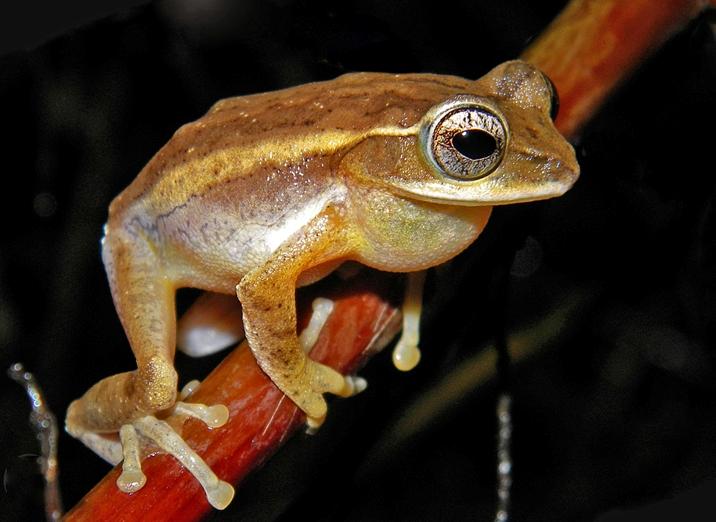A team of independent researchers from India has discovered two new genera of frogs in a highly threatened swampy ecosystem of the Western Ghats.
The research team, led by Robin Kurian Abraham and Anil Zachariah, found that the new amphibians are unique to this Indian biodiversity hotspot.
“The two new genera were identified as novelties only after we understood their reproductive behavior,” Abraham, an independent researcher based in Thiruvananthapuram, Kerala, told The Epoch Times.
“Frogs of both genera breed differently from all other known frogs in their family,” he said.
The two genera are closely related to each other as well as to the bush-frogs of India and Sri Lanka.
The amphibians are named after two distinguished personalities who shared a bonding with the hilly region.
The first genus, Beddomixalus, is named after colonel Richard Henry Beddome, a botanist and a British military officer in India, who made excellent contributions to the descriptions of unique flora and fauna of the Western Ghats while serving as the Chief Conservator of Forests in the Madras Presidency.
The second genus, Mercurana, is named after Freddie Mercury, the British singer and lead musician of the rock band Queen. He spent most of his childhood in the hilly area of Panchagni, located in the northern part of the Western Ghats.
The Western Ghats is a recognized biodiversity hotspot and is home to a rich assemblage of amphibians.
“Over the last ten years more than 70 new amphibian species have been added to the list of species discovered here, which justifies its position as a UNESCO world heritage site and a biodiversity hotspot,” he said.
Deforestation activities in the Western Ghats might spell threat to these novel amphibians. The specialized wild species of nutmeg trees (Myristica genus) that grow near these amphibians’ breeding zone have been destroyed over the years to make way for cash crops such as Rubber and Oil Palm.
“Mercurana’s habitat is the highly threatened Myristica swamp ecosystem,” he said. “Currently they occur as a handful of fragments in a few parts of the Western Ghats.”
Future work by research groups working on amphibians in the Western Ghats is likely to yield more undiscovered novel life-forms in this area.
The discovery was published in the latest issue of the international taxonomic journal, Zootaxa.




